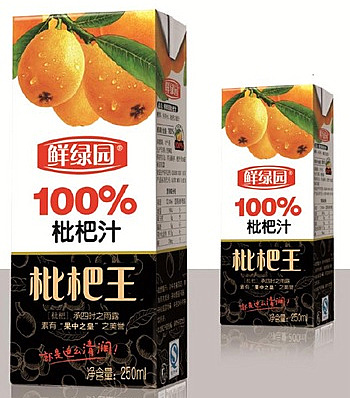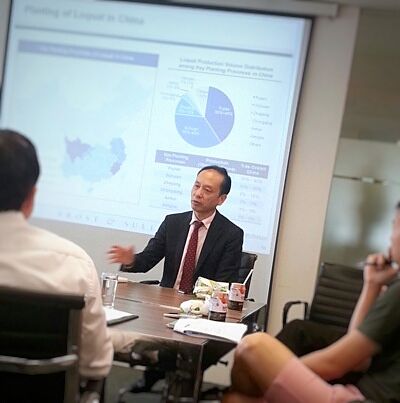"Loquat Fan" contributed this article to NextInsight
|
|
I will elaborate on the details and implications of the latest restructuring below after outlining the various developments since Garden Fresh first issued bonds.
In 2011, Garden Fresh, Sino Grandness' beverage subsidiary, sought long-term funds to grow its loquat juice business.
2011 RMB 100m convertible bonds
Banks did not lend to Garden Fresh as it was new and small.
On 19 Oct 2011 Garden Fresh issued RMB 100m 3-year zero-coupon convertible bonds to Sun Hung Kai on onerous terms. The bonds would be redeemed at 25% compound interest rate if Garden Fresh fails to be listed.
If a listing materialises, bondholders would own 6.67% of Garden Fresh, which was then valued at RMB 1,500m.
Sun Hung Kai itself subscribed RMB 19.5m, and brought in CDIB, a Taiwanese banking group, for the remaining RMB 80.5m.
Bondholders had the option of extending the maturity date of 19 Oct 2014 to 30 June 2015, to allow more time for listing.
2012 RMB 100m convertible bonds
On 25 July 2012, RMB 270m 3-year zero-coupon convertible bonds were issued for Garden Fresh to grow further.
Goldman Sachs took RMB 231m and was given a seat on the Garden Fresh Board. CDIB, which subscribed the bulk of 2011 bonds, took RMB 15m. The remaining RMB 24m were divided equally among three Taiwanese investors.
The compound interest rate for 2012 bonds was 20%, lower than the 25% for 2011 bonds. 2012 bondholders have the right for "accelerated" redemption if any 2011 bonds are redeemed.
Holders of 2011 and 2012 bonds collectively held a 24.67% potential stake in Garden Fresh.
Garden Fresh ramping up
The bond proceeds helped Garden Fresh to expand sales from RMB 180m in 2010 to RMB 2,531m in 2016.
Garden Fresh has also built beverage factories to gradually reduce its reliance on contract manufacturers. The advantages include better quality control, better production scheduling, and higher profit margins.
Based on the IPO prospectus submitted by Garden Fresh in 2016, RMB 317m was spent between 2013 and 2015 and RMB 350m pre-paid as at end-2015 on capital projects. Working capital rose from RMB 461m in 2013 to RMB 835m in 2015. In addition, RMB 500m was spent over the period on advertising and promotion.
First redemption in Oct 2014
In Oct 2014, Sun Hun Kai requested redemption. CDIB did not follow suit, it exercised the option to extend the maturity of 2011 bonds to 30 June 2015. 2012 bondholders did not invoke their "accelerated redemption" right.
Those who stayed potentially owned a collective stake of 23.37% of Garden Fresh.
Subsequently, the maturity date of 2011 bonds was shifted by 25 days, to 25 July 2015, to coincide with that of 2012 bonds.
First bond restructuring, in 2016
To conserve cash to fully redeem the bonds, Garden Fresh would have to grow at a slower pace. But this may risk losing its dominance in the louqat juice sector. (Garden Fresh's market share was 86.3% in 2015, according to Euromonitor).
As it is represented on the Garden Fresh Board, Goldman Sachs is aware of Garden Fresh's growth strategy, and has likely ruled out full redemption on maturity. Bondholders may have also anticipated value of their potential stakes in Garden Fresh to be even higher than the hefty redemption amounts.
The maturity date of 25 July 2015 passed, and the only news then was that negotiations with bondholders on bond restructuring were on-going.
Decision on bond restructuring was reached on 1 March 2016 as follows:
(a) 15% of the principal amounts of both bonds to be redeemed on 1 May 2016;
(b) 25% of the principal amounts of both bonds to be redeemed on 28 Feb 2017, with a concessionary 10% interest rate starting 1 March 2016; and
(c) 60% of the principal amounts to be redeemed on 28 Feb 17, if listing still did not materialise by then.
The first installment (known as straight bonds one, or SB1), amounting to RMB 102m, was paid on time.
The amounts to be payable on 28 Feb 2017 were RMB 196m for the second installment (known as SB2) and RMB 535m for the outstanding bonds.
The partial redemption would reduce bondholders' potential stake in Garden Fresh to 14.7%, from 23.37% before.
Draft IPO prospectus
On 31 March 2016, Garden Fresh submitted a draft IPO prospectus to the Hong Kong Stock Exchange. The application lapsed on 30 Sep 2016, six months later. The IPO sponsor, DBS Capital Asia, is continuing with its task.
US$ 25m 7-year loan from DEG
In 3Q 16, Garden Fresh obtained a US$ 25m 7-year loan from the German development bank, DEG (Deutsche Investions-und Entwicklungsgesellschaft mbH). This was an affirmation that fruit growers are benefiting from juice production by the company.
Standby bank credit facilities
The 28 Feb 17 deadline for bond redemption came and went.
Sino Grandness had secured standby banking credits amounting to RMB 582m by March 2017, besides a cash balance of RMB 468m (excluding the RMB 312m earmarked for non-beverage business) as at end-March 17.
|
Second bond restructuring, in 2017 |
Conclusion
Garden Fresh has grown its business aggressively and, at the same time, gradually pared down its liabilities.
The recent second restructuring is significant. The replacement of high-interest bonds by lower-interest preference shares reflects creditors' growing confidence in Garden Fresh.










Another significant point to note would be that from GS' and CDIB's standpoint, bonds are safer than preference shares and yet they opted for preference shares.